Grace Elliot's Blog: 'Familiar Felines.' , page 38
December 19, 2010
Puss in Boots - a new look at the Pantomime story.
Puss in Boots.
The Pantomime season is upon us once more.
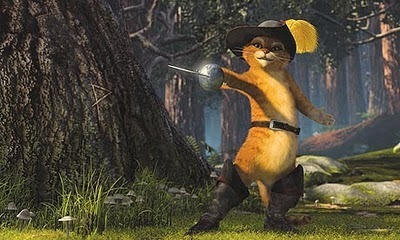 [I digress, but recently I found an American relative by marriage had no idea what a pantomime was. So for those whose culture is sensible and where men don't dress up as women and shout 'He's behind you' from the stage, a pantomime is a traditional tale given a modern twist, peppered with jokes and songs…and oh yes, men dressed up as women.] As a child I remember a Christmas treat of being taken to the London Palladian to see 'Puss in Boots.' This is a version of the story of a poor boy, Dick Whittington. He heard rumours that London was paved with gold and gathered all his possessions into a spotted handkerchief and, along with his pet cat Puss, went to the city where the cat helped him make his fortune.
[I digress, but recently I found an American relative by marriage had no idea what a pantomime was. So for those whose culture is sensible and where men don't dress up as women and shout 'He's behind you' from the stage, a pantomime is a traditional tale given a modern twist, peppered with jokes and songs…and oh yes, men dressed up as women.] As a child I remember a Christmas treat of being taken to the London Palladian to see 'Puss in Boots.' This is a version of the story of a poor boy, Dick Whittington. He heard rumours that London was paved with gold and gathered all his possessions into a spotted handkerchief and, along with his pet cat Puss, went to the city where the cat helped him make his fortune.
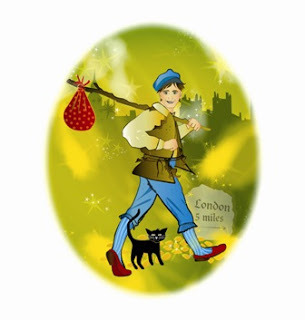 'Dick Whittington had often heardThe curious story told.That far fam'd London's brilliant streetsWere paved with sheets of gold.'
'Dick Whittington had often heardThe curious story told.That far fam'd London's brilliant streetsWere paved with sheets of gold.'
But this is more than just a story. There was a real Dick Whittington (1358 – 1423), the youngest son of Sir William Whittington, and he did indeed become Lord Mayor of London three times, as told in the pantomime.
'Poor Dick ran away,Four miles he ran, then wearied much,He sat him on a stone, And heard the merry bells of BowSpeak to him in this tone – Turn agin Whittington,Thrice Lord Mayor of London.'
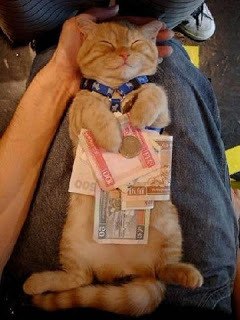
So, you might well ask, how did the cat make Dick his fortune?The story suggestion is that Dick sold poor Puss to the King of Barbary, earning a fortune which he then invested.
'Meanwhile puss sail'd across the seas,Unto the Moorish Court,And to the palace of the King,The merchant Pussy brought. For that poor King no rest enjoy'dAll through the rats and mice,They swept the food from off his board – Puss killed them in a trice.'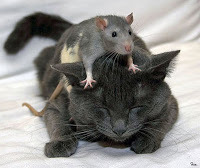
This may not be as far fetched as it seems because there was a regular trade in good British mousing cats, sent to foreign climes to free them of vermin. For example, an advertisement in 1857 offers to buy live cats to export to New Zealand…and of course not forgetting the generous export of a ship load of cats to St Helena, to free Napoleon (who was terrified of cats!) from a plague of rats.
'The King gave him heaps of gold, For an animal so rare.'
But a more likely explanation is that the 'Cats' referred to in the Whittington story were a type of sailing vessel designed for shipping coal. These 'Cats' plyed a profitable trade and it is highly likely that Dick Whittington earned his wealth from some canny investments in the shipping trade transporting coal!

'For Whittington was thrice Lord MajorIn great King Henry's reign.'
The Pantomime season is upon us once more.
 [I digress, but recently I found an American relative by marriage had no idea what a pantomime was. So for those whose culture is sensible and where men don't dress up as women and shout 'He's behind you' from the stage, a pantomime is a traditional tale given a modern twist, peppered with jokes and songs…and oh yes, men dressed up as women.] As a child I remember a Christmas treat of being taken to the London Palladian to see 'Puss in Boots.' This is a version of the story of a poor boy, Dick Whittington. He heard rumours that London was paved with gold and gathered all his possessions into a spotted handkerchief and, along with his pet cat Puss, went to the city where the cat helped him make his fortune.
[I digress, but recently I found an American relative by marriage had no idea what a pantomime was. So for those whose culture is sensible and where men don't dress up as women and shout 'He's behind you' from the stage, a pantomime is a traditional tale given a modern twist, peppered with jokes and songs…and oh yes, men dressed up as women.] As a child I remember a Christmas treat of being taken to the London Palladian to see 'Puss in Boots.' This is a version of the story of a poor boy, Dick Whittington. He heard rumours that London was paved with gold and gathered all his possessions into a spotted handkerchief and, along with his pet cat Puss, went to the city where the cat helped him make his fortune. 'Dick Whittington had often heardThe curious story told.That far fam'd London's brilliant streetsWere paved with sheets of gold.'
'Dick Whittington had often heardThe curious story told.That far fam'd London's brilliant streetsWere paved with sheets of gold.'But this is more than just a story. There was a real Dick Whittington (1358 – 1423), the youngest son of Sir William Whittington, and he did indeed become Lord Mayor of London three times, as told in the pantomime.
'Poor Dick ran away,Four miles he ran, then wearied much,He sat him on a stone, And heard the merry bells of BowSpeak to him in this tone – Turn agin Whittington,Thrice Lord Mayor of London.'

So, you might well ask, how did the cat make Dick his fortune?The story suggestion is that Dick sold poor Puss to the King of Barbary, earning a fortune which he then invested.
'Meanwhile puss sail'd across the seas,Unto the Moorish Court,And to the palace of the King,The merchant Pussy brought. For that poor King no rest enjoy'dAll through the rats and mice,They swept the food from off his board – Puss killed them in a trice.'

This may not be as far fetched as it seems because there was a regular trade in good British mousing cats, sent to foreign climes to free them of vermin. For example, an advertisement in 1857 offers to buy live cats to export to New Zealand…and of course not forgetting the generous export of a ship load of cats to St Helena, to free Napoleon (who was terrified of cats!) from a plague of rats.
'The King gave him heaps of gold, For an animal so rare.'
But a more likely explanation is that the 'Cats' referred to in the Whittington story were a type of sailing vessel designed for shipping coal. These 'Cats' plyed a profitable trade and it is highly likely that Dick Whittington earned his wealth from some canny investments in the shipping trade transporting coal!

'For Whittington was thrice Lord MajorIn great King Henry's reign.'
Published on December 19, 2010 09:02
December 14, 2010
Stir Up Sunday.
As Christmas approached the Victorian’s had a tradition called ‘Stir Up Sunday’. This was held to be the day when that year’s Christmas pudding was made. A family event, it was considered good luck for everyone to stir the pudding mix – clockwise with their eyes shut or the wish wouldn’t come true. So you could be forgiven for thinking that this is where ‘Stir up Sunday’ originates from.
But you would be wrong...
TO READ THE FULL POST VISIT:
http://graceelliot-author.blogspot.com
A Dead Man's Debt
But you would be wrong...
TO READ THE FULL POST VISIT:
http://graceelliot-author.blogspot.com
A Dead Man's Debt
Published on December 14, 2010 12:16
•
Tags:
a-dead-man-s-debt, blog, grace-elliot, historical-romance, romance
December 12, 2010
Cat pies? -Victorian attitudes to cats.
Would it surprise you to learn that in Victorian times, if you were well off and owned a cat you were liable to
be called eccentric? This was because although cats were widely kept, it was by the poorer working
classes who needed them to keep down the vermin population in rodent infested lodgings. An RSPCA
report from the 1857 notes that:
'…almost every [working class] household has a cat.'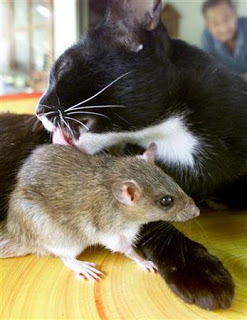
Indeed for a Victorian to own a cat was tantamount to advertising their impoverished circumstances, as illustrated by Dick Whittington. In the story the future Lord Mayor's companion was a cat, something the audience would have immediately understood as showing that Dick was a humble man from a poor background.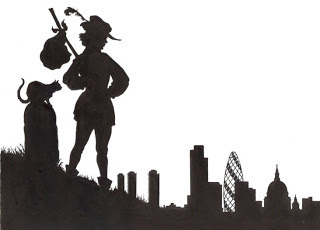
In his 19th century 'Survey of London Life' Booth observes that a householder's income was reflected by the condition of his cat.'People are poor indeed whose cats look starved. I have seen the Cats' Meat Man on his round in a very poor street and no less than a dozen cats were strolling around with tails confidently raised, awaiting their turns.'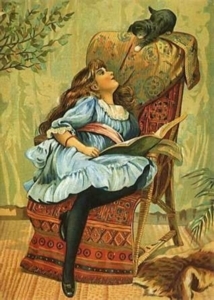 In such times, cats were generally not pampered like today's animals, far from it they were often cruelly abused. Alfred Rosling wrote in the 1850's:'No boy…would dream of passing a cat without throwing [a stone] at it.'But perhaps these poor animals were lucky just being stoned since there was a recognised problem with traders who trapped cats for their pelts. Victorian times were perilous for cats since it wasn't just their skins that were in demand, it was also their meat. In Charles Dickens' novel the Pickwick Papers, Sam Weller discusses 'Cat Pies' with Mr Pickwick: I [Sam Weller] lodged in the same house vith a pieman once…make pies out o'anything, he could. 'What a number o'cats you keep, Mr Brooks,' says I 'You must be very fond of cats' says I. 'Other people is,' says he a-winkin' at me…and vispering in my ear, 'don't mention this agin…but it's
In such times, cats were generally not pampered like today's animals, far from it they were often cruelly abused. Alfred Rosling wrote in the 1850's:'No boy…would dream of passing a cat without throwing [a stone] at it.'But perhaps these poor animals were lucky just being stoned since there was a recognised problem with traders who trapped cats for their pelts. Victorian times were perilous for cats since it wasn't just their skins that were in demand, it was also their meat. In Charles Dickens' novel the Pickwick Papers, Sam Weller discusses 'Cat Pies' with Mr Pickwick: I [Sam Weller] lodged in the same house vith a pieman once…make pies out o'anything, he could. 'What a number o'cats you keep, Mr Brooks,' says I 'You must be very fond of cats' says I. 'Other people is,' says he a-winkin' at me…and vispering in my ear, 'don't mention this agin…but it's
the seasonin' as does it,' says he, a-pointin' to a wery nice little tabby kitten, 'and I seasons 'em for
beefsteak, weal or kidney, 'cording to the demand.'
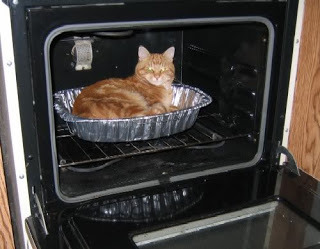

be called eccentric? This was because although cats were widely kept, it was by the poorer working
classes who needed them to keep down the vermin population in rodent infested lodgings. An RSPCA
report from the 1857 notes that:
'…almost every [working class] household has a cat.'

Indeed for a Victorian to own a cat was tantamount to advertising their impoverished circumstances, as illustrated by Dick Whittington. In the story the future Lord Mayor's companion was a cat, something the audience would have immediately understood as showing that Dick was a humble man from a poor background.

In his 19th century 'Survey of London Life' Booth observes that a householder's income was reflected by the condition of his cat.'People are poor indeed whose cats look starved. I have seen the Cats' Meat Man on his round in a very poor street and no less than a dozen cats were strolling around with tails confidently raised, awaiting their turns.'
 In such times, cats were generally not pampered like today's animals, far from it they were often cruelly abused. Alfred Rosling wrote in the 1850's:'No boy…would dream of passing a cat without throwing [a stone] at it.'But perhaps these poor animals were lucky just being stoned since there was a recognised problem with traders who trapped cats for their pelts. Victorian times were perilous for cats since it wasn't just their skins that were in demand, it was also their meat. In Charles Dickens' novel the Pickwick Papers, Sam Weller discusses 'Cat Pies' with Mr Pickwick: I [Sam Weller] lodged in the same house vith a pieman once…make pies out o'anything, he could. 'What a number o'cats you keep, Mr Brooks,' says I 'You must be very fond of cats' says I. 'Other people is,' says he a-winkin' at me…and vispering in my ear, 'don't mention this agin…but it's
In such times, cats were generally not pampered like today's animals, far from it they were often cruelly abused. Alfred Rosling wrote in the 1850's:'No boy…would dream of passing a cat without throwing [a stone] at it.'But perhaps these poor animals were lucky just being stoned since there was a recognised problem with traders who trapped cats for their pelts. Victorian times were perilous for cats since it wasn't just their skins that were in demand, it was also their meat. In Charles Dickens' novel the Pickwick Papers, Sam Weller discusses 'Cat Pies' with Mr Pickwick: I [Sam Weller] lodged in the same house vith a pieman once…make pies out o'anything, he could. 'What a number o'cats you keep, Mr Brooks,' says I 'You must be very fond of cats' says I. 'Other people is,' says he a-winkin' at me…and vispering in my ear, 'don't mention this agin…but it'sthe seasonin' as does it,' says he, a-pointin' to a wery nice little tabby kitten, 'and I seasons 'em for
beefsteak, weal or kidney, 'cording to the demand.'

Published on December 12, 2010 07:05
December 7, 2010
The Ton.
The blurb for ‘A Dead Man’s Debt’ mentions the heroine Celeste Armitage being ‘…sent from the ton in disgrace.’
As a lover of the regency the ton is a familiar expression to me, but I was a little surprised when proof reading friends gently told broke it to me that I had spelt ‘town’ incorrectly.
So what exactly was ‘the ton.’?
TO READ THE FULL POST PLEASE VISIT:
http://graceelliot-author.blogspot.co...
A Dead Man's Debt
As a lover of the regency the ton is a familiar expression to me, but I was a little surprised when proof reading friends gently told broke it to me that I had spelt ‘town’ incorrectly.
So what exactly was ‘the ton.’?
TO READ THE FULL POST PLEASE VISIT:
http://graceelliot-author.blogspot.co...
A Dead Man's Debt
Published on December 07, 2010 12:00
•
Tags:
a-dead-man-s-debt, blog, cats, grace-elliot, historical-romance, romance
December 5, 2010
Night Owl Reviews - interview Grace Elliot.
Today at Night Owl Reviews, Grace Elliot is interviewed.
Author of regency romance, Grace discusses her love of the genre and how she turned to writing as a release from the emotional demands of being a veterinarian.
To learn all Grace's secrets (well, perhaps not quite all...) follow the link.
http://www.nightowlromance.com/nor/In...
Author of regency romance, Grace discusses her love of the genre and how she turned to writing as a release from the emotional demands of being a veterinarian.
To learn all Grace's secrets (well, perhaps not quite all...) follow the link.
http://www.nightowlromance.com/nor/In...
Published on December 05, 2010 11:02
•
Tags:
a-dead-man-s-debt, grace-elliot, night-owl-reviews
Snow Joke...when you're a cat.
Seeing how my cats reacted to the cold weather, but me in mind of a wager between the Georgian politician, Charles James Fox and Prinny, the Prince of Wales. To find out what the wager was, what it has to do with cats and the weather...and who won… visit the link below.
http://graceelliot-author.blogspot.com
http://graceelliot-author.blogspot.com
Published on December 05, 2010 09:00
•
Tags:
a-dead-man-s-debt, blog, cats, grace-elliot, historical-romance, romance
Snow Joke - when you're a cat.
Snow Joke - when you're a cat.
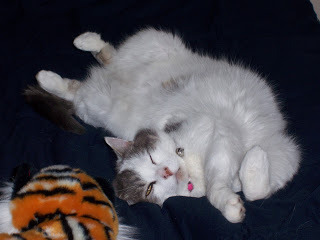 Widget - coping with harsh weather conditions. This week the UK struggled under an early dusting of snow. Needless to say my cats regarded their frozen garden with utter distaste, seeing it as their duty to pin down the sofa beneath a pile of cushions. Disappointingly, Widget turned down the opportunity of hunting, being camouflaged against the snow, in favor of a snooze on her radiator bed.
Widget - coping with harsh weather conditions. This week the UK struggled under an early dusting of snow. Needless to say my cats regarded their frozen garden with utter distaste, seeing it as their duty to pin down the sofa beneath a pile of cushions. Disappointingly, Widget turned down the opportunity of hunting, being camouflaged against the snow, in favor of a snooze on her radiator bed.
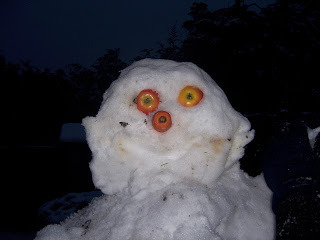
A cat's love of heat and comfort reminded me of the story of a wager between the George IV, when Prince of Wales, and the eminent Georgian politician Charles James Fox.
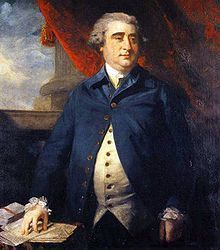 Charles James Fox, 1782, by Joshua Reynolds.
Charles James Fox, 1782, by Joshua Reynolds.
The story goes that one broiling hot summer's day, Fox and the Prince of Wales happened to find themselves walk together along St James' Street, London. Sweltering in their wigs, coats and waistcoats, Fox suggested a wager to take Prinny's mind off the uncomfortable heat.
Fox bet that he would see more cats on his side of the road, even if he allowed the Prince to chose which side to walk on. Prinny readily agreed. But on reaching Piccadily it transpired that Fox had seen 13 cats and the Prince of Wales none.
Amazed by this seeming feat of magic, the Prince insisted on an explanation. "Your Royal Highness," Fox said, "chose of course, the shady side of the way as the most agreeable. I knew that the sunny side would be left for me, and that cats prefer the sunshine."
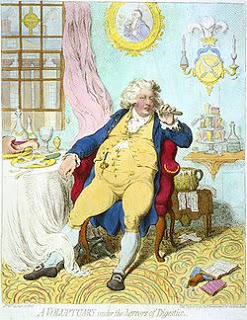 Gillray cartoon of the Prince of Wales.
Gillray cartoon of the Prince of Wales.

 Widget - coping with harsh weather conditions. This week the UK struggled under an early dusting of snow. Needless to say my cats regarded their frozen garden with utter distaste, seeing it as their duty to pin down the sofa beneath a pile of cushions. Disappointingly, Widget turned down the opportunity of hunting, being camouflaged against the snow, in favor of a snooze on her radiator bed.
Widget - coping with harsh weather conditions. This week the UK struggled under an early dusting of snow. Needless to say my cats regarded their frozen garden with utter distaste, seeing it as their duty to pin down the sofa beneath a pile of cushions. Disappointingly, Widget turned down the opportunity of hunting, being camouflaged against the snow, in favor of a snooze on her radiator bed. 
A cat's love of heat and comfort reminded me of the story of a wager between the George IV, when Prince of Wales, and the eminent Georgian politician Charles James Fox.
 Charles James Fox, 1782, by Joshua Reynolds.
Charles James Fox, 1782, by Joshua Reynolds. The story goes that one broiling hot summer's day, Fox and the Prince of Wales happened to find themselves walk together along St James' Street, London. Sweltering in their wigs, coats and waistcoats, Fox suggested a wager to take Prinny's mind off the uncomfortable heat.
Fox bet that he would see more cats on his side of the road, even if he allowed the Prince to chose which side to walk on. Prinny readily agreed. But on reaching Piccadily it transpired that Fox had seen 13 cats and the Prince of Wales none.
Amazed by this seeming feat of magic, the Prince insisted on an explanation. "Your Royal Highness," Fox said, "chose of course, the shady side of the way as the most agreeable. I knew that the sunny side would be left for me, and that cats prefer the sunshine."
 Gillray cartoon of the Prince of Wales.
Gillray cartoon of the Prince of Wales.
Published on December 05, 2010 08:42
November 30, 2010
Waking in 'Cloud Cuckoo land.'
This morning I woke to a snow kissed world, the brightness dazzling as I drew back the curtains. My sons were excited, anticipating hours of making snow men and sledging, but when I suggested they get ready for school, their gleeful response was ‘You’re in cloud cuckoo land, school wont open today– the teachers wont go in.’
This set me thinking, not so much about a lack of determination to beat the weather, but more on where the phrase ‘Cloud cuckoo land’ came from.
To read the full post visit:
http://graceelliot-author.blogspot.com
(historical slang page.)A Dead Man's Debt
This set me thinking, not so much about a lack of determination to beat the weather, but more on where the phrase ‘Cloud cuckoo land’ came from.
To read the full post visit:
http://graceelliot-author.blogspot.com
(historical slang page.)A Dead Man's Debt
Published on November 30, 2010 11:46
•
Tags:
a-dead-man-s-debt, blog, grace-elliot, historical-romance, romance
November 27, 2010
Victorian Vets - a woeful reputation!
I have two addictions – cats and reading and ‘reading about cats’ a natural consequence.. I recently picked up a fascinating book by Charles Henry Ross. Written in 1868 ‘The Book of Cats – a Chit-chat Chronicle of Feline Facts and Fancies.’ Packed with observations on all things cattish, in one chapter the author touches on health care.
Being a veterinarian myself, I read this sage advice with a wry smile:
‘In giving a cat the scrapings of dirty plates, it is as well, if you value the animal’s life, to the fish bones, should there be any among the leavings.’
TO READ the full post visit:
http://graceelliot-author.blogspot.com
A Dead Man's Debt
Being a veterinarian myself, I read this sage advice with a wry smile:
‘In giving a cat the scrapings of dirty plates, it is as well, if you value the animal’s life, to the fish bones, should there be any among the leavings.’
TO READ the full post visit:
http://graceelliot-author.blogspot.com
A Dead Man's Debt
Published on November 27, 2010 12:59
•
Tags:
a-dead-man-s-debt, blog, cats, grace-elliot, historical-romance, romance
Victorian Veterinarians - a Woeful Reputation!
I have two addictions – cats and reading and so 'reading about cats' is a natural consequence. I recently picked up a fascinating book by Charles Henry Ross. Written in 1868 'The Book of Cats – a Chit-chat Chronicle of Feline Facts and Fancies.' Packed with observations on all things cattish, in one chapter the author touches on health care and veterinarians.
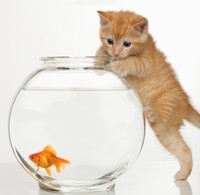
Being a veterinarian myself, I read this sage advice with a wry smile:
'In giving a cat the scrapings of dirty plates, it is as well, if you value the animal's life, to the fish bones, should there be any among the leavings.'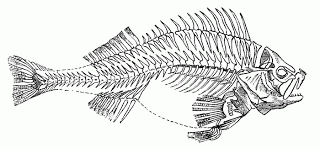
Mr Ross goes on to describe the trauma to pet and owner of a fish bone getting stuck, something he had first hand experience of. Whilst staying with a lady friend, her cat suffered for three days from a stuck fish bone, refusing all food and not even able to lap. Eventually, at her wits end, the owner called on the help of a veterinarian.
'At last someone suggested seeking the aid of a veterinary surgeon whose dignity seemed just a little bit ruffled by being called in for a Cat, and who, when he did come, did not bring his instruments with him. Nevertheless, he found out what was wrong and forcing open the Cat's jaws, put in his finger to loosen what he called a fish bone.'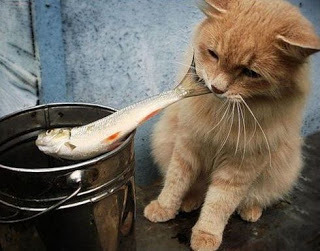
Alas, this woeful lack of regard for the feline species amongst 19th century veterinarians, seems to be the norm rather than the exception, as illustrated in this passage from Hugh Lofting's famous novel, 'The Story of Doctor Do-Little.'
'It happened one day that the Doctor was sitting in his kitchen talking with the Cat's Meat Man who had come to see him with a stomach ache."Why don't you give up being a people's doctor and be an animal doctor?" Asked the Cat's Meat Man."But there are plenty of animal-doctors." John Do-Little replied."But you see Doctor," the Cat's Meat Man went on, 'you know all about animals much more than what these here vets do.""Yes, there are plenty,' said Polynesia (the parrot) "but none of them any good at all."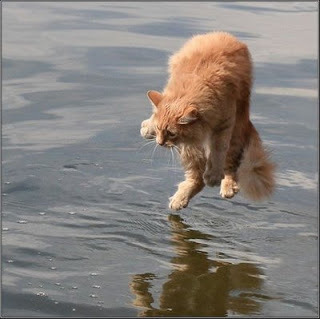
What a lamentable reputation the veterinary profession had then! But did you also notice the reference to the Cat's Meat Man? Intriguing…and the subject of a post on another occasion….

Being a veterinarian myself, I read this sage advice with a wry smile:
'In giving a cat the scrapings of dirty plates, it is as well, if you value the animal's life, to the fish bones, should there be any among the leavings.'

Mr Ross goes on to describe the trauma to pet and owner of a fish bone getting stuck, something he had first hand experience of. Whilst staying with a lady friend, her cat suffered for three days from a stuck fish bone, refusing all food and not even able to lap. Eventually, at her wits end, the owner called on the help of a veterinarian.
'At last someone suggested seeking the aid of a veterinary surgeon whose dignity seemed just a little bit ruffled by being called in for a Cat, and who, when he did come, did not bring his instruments with him. Nevertheless, he found out what was wrong and forcing open the Cat's jaws, put in his finger to loosen what he called a fish bone.'

Alas, this woeful lack of regard for the feline species amongst 19th century veterinarians, seems to be the norm rather than the exception, as illustrated in this passage from Hugh Lofting's famous novel, 'The Story of Doctor Do-Little.'
'It happened one day that the Doctor was sitting in his kitchen talking with the Cat's Meat Man who had come to see him with a stomach ache."Why don't you give up being a people's doctor and be an animal doctor?" Asked the Cat's Meat Man."But there are plenty of animal-doctors." John Do-Little replied."But you see Doctor," the Cat's Meat Man went on, 'you know all about animals much more than what these here vets do.""Yes, there are plenty,' said Polynesia (the parrot) "but none of them any good at all."

What a lamentable reputation the veterinary profession had then! But did you also notice the reference to the Cat's Meat Man? Intriguing…and the subject of a post on another occasion….
Published on November 27, 2010 09:07
'Familiar Felines.'
Following on from last weeks Halloween posting, today's blog post looks at the unwanted image of cats as the witches familiar - from the Norse Goddess Freya to lonely women in the middle ages.
The full Following on from last weeks Halloween posting, today's blog post looks at the unwanted image of cats as the witches familiar - from the Norse Goddess Freya to lonely women in the middle ages.
The full post can found at:
http://graceelliot-author.blogspot.com
...more
The full Following on from last weeks Halloween posting, today's blog post looks at the unwanted image of cats as the witches familiar - from the Norse Goddess Freya to lonely women in the middle ages.
The full post can found at:
http://graceelliot-author.blogspot.com
...more
- Grace Elliot's profile
- 156 followers



